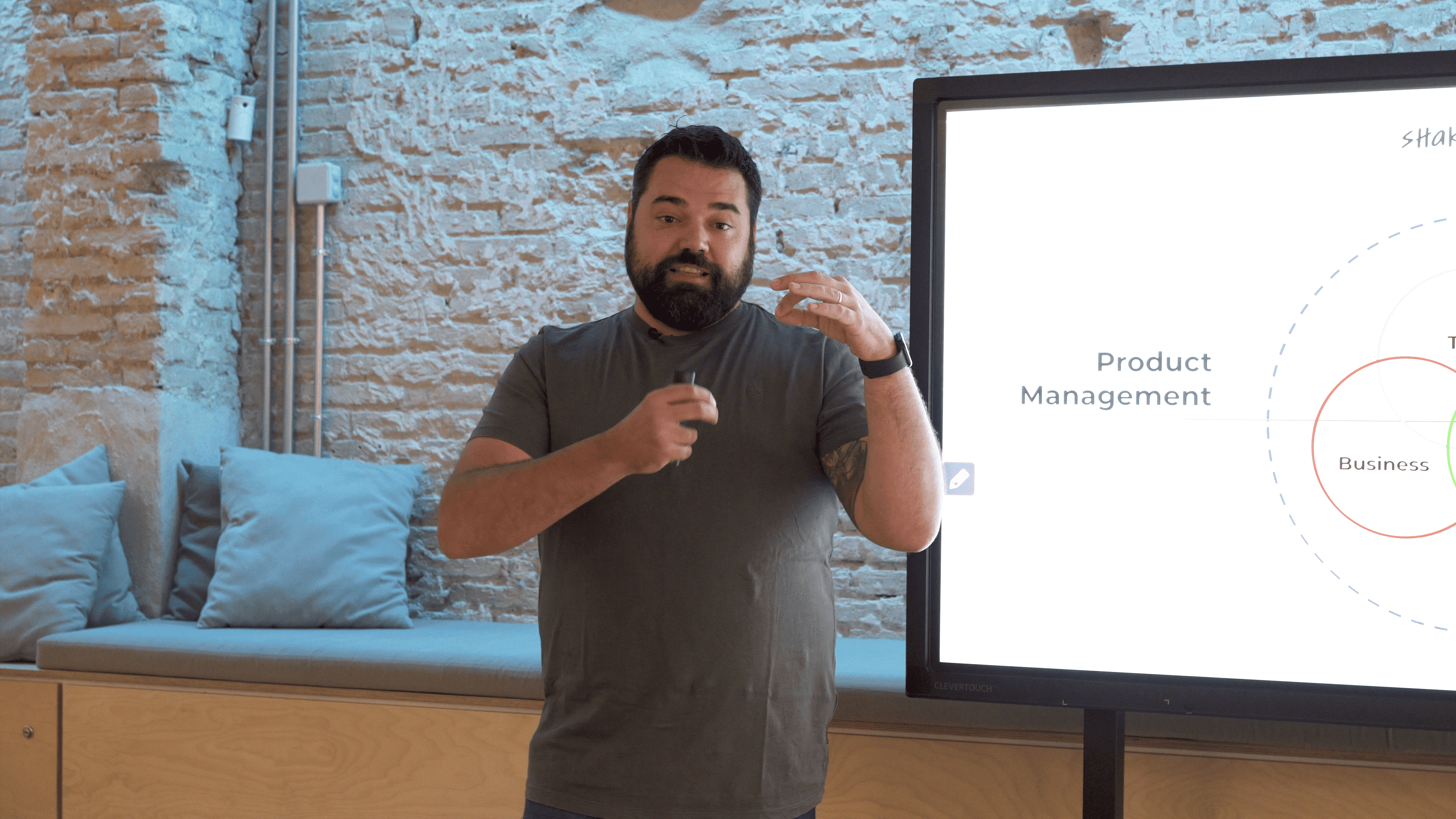- Adrian de Pedro, co-founder and product manager of Shakers, explained how to create a digital product from scratch at the wayCO Learn workshop in April.
- The wayCO Learn workshops are one-hour theoretical and practical information sessions in which wayCO members share their knowledge with the rest of the community.
The hybrid between business, technology and design that product managers represent has made this figure one of the most sought-after professional profiles by companies. A new “unicorn” in the world of work, whose demand in our country is accentuated by the shortage of technological talent and the need for companies to accelerate their digital transformation.
During his masterclass at wayCO Ruzafa, the co-founder and product manager of Shakers, Adrián de Pedro, explained to the wayCO community what product management is and shared tips and tools for creating digital products. Adrián is a coworker at wayCO Ruzafa and started working at wayCO in 2017.
What is a product manager
Product management is the cornerstone that unites all the disciplines of a company to create digital products. Although it is erroneously attributed a high degree of technological specialisation, the truth is that the greatest virtual advantage of this type of professional lies in their communication and decision-making skills.
Adrian explained it with this clear example: “Just yesterday I met with a client who had just joined Shakers with a very interesting project. This client had hired a designer to make a spectacular design for him in Figma, and as it was now time for someone in programming to bring it to reality, the client wanted to talk to the person in question.
The problem is that the distance between business and development is very long, that is, there are many people involved, and not all of them understand the customer’s language. That is why in these cases the figure of the product manager is so important, an intermediary role that understands the language of all the parties involved, listens to them, and makes communication flow to translate the needs of the business into reality, into technology, into what we want to do”.
Digital products: No need to reinvent the wheel
What if innovation, as we understand it, were wrong? More and more people are advocating a more “smart and practical” interpretation of the term, which moves away from the groundbreaking and disruptive and brings innovation closer to improving and updating existing ideas.
“We use the word innovate very badly. For me, innovation means detecting things on the internet and evolving them, finding that little bit extra to what is already on the market,” says De Pedro.
The three fundamental pillars of product management
Although it may seem a very reductionist view, the work of a digital product manager is divided into three phases: research, plan and develop. “This means listening, prioritising and executing.
The Internet is the gateway to research and listening, and is used to get to know the competition, detect customer needs and evaluate opportunities. Then comes the definition of objectives and their prioritisation and planning – “the most complicated work in product does not have to do with technology, but with deciding what to do and what not to do at any given moment with all the information around you” -; and finally, the development of what has been devised.
“Notion is wonderful”
As Adrian says, “if you use the tools on the market well, you can get three to four times more out of all your equipment”, and Notion, the online project management software, also known as the Swiss army knife of productivity, has become his company’s philosopher’s stone for creating digital products.
Notion is designed to help members of a company coordinate deadlines, objectives and tasks and “although it may not appeal to either the technology or administrative side, it is very economical – with one licence you can invite 100 people – and allows very simple collaborative work through the creation of documents and web pages. Moreover, it is the tool used by the new unicorns and if they use it, it is for a reason”.
How to prioritise
Given the obsession of startups and companies with OKRs, Adrián de Pedro and Shakers are committed to the methodology of NTCs objectives: narratives, commitments and tasks.
His defence of NTCs is based on the simple, overarching narrative that characterises them and their subsequent combination with numerical targets: “OKRs are fine, but the problem for a startup is that they don’t have data, they don’t have the same history as, say, Danone. So setting a sales target based on market breadth or personal belief may not be realistic.
About Shakers
Shakers is a start-up based in Madrid and Valencia that brings together freelance digital experts, especially technology experts, with projects. The company founded in 2021 by Héctor Mata, Jaime Castillo and Adrián de Pedro, has gone through accelerators such as Lanzadera and SeedRocket, and closed 2022 with 900 registered companies and 400 published projects. Today they have a team of 29 people around Spain;
34435







